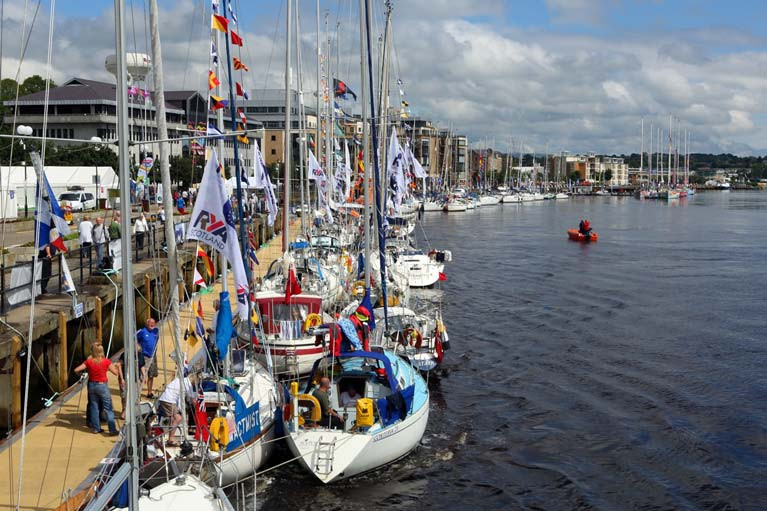The postponement of the Clipper Race 2019 – 20 will have a huge effect on the City of Derry where the fleet was due to have its penultimate stop-over at the end of July. Derry City and Strabane District Council say the decision by Clipper Ventures to postpone the Clipper 2019-20 Race is “disappointing news but understandable” considering the current COVID-19 situation being faced across the globe.
As Afloat reported previously, crews were quarantined in the Philippines in mid-March.
The Mayor, Councillor Michaela Boyle said the decision to postpone the Race is the right one in the current climate. This postponement will have an impact on the timing of future races. As the 2019-20 edition’s remaining three legs will be resumed in approximately ten months when the circumnavigation will be completed, the next full edition of the Clipper Race will start in the summer of 2022.
And, again in light of the COVID -19 crisis, the Foyle Maritime Festival of which the Clipper event was a huge part, has also been postponed. Councillor Boyle commented “By working together and looking out for one another we can all do our bit to limit the spread of this virus and protect our local community by taking the necessary precautions to stay safe,”
The economic value of the Festival would have been expected to be substantial, with the 2018 event attracting 220,000 people and bringing in £2.20 for every pound invested by the Council. There were over 84 craft and eleven Clippers on the pontoons and quays in the heart of Derry.


























































